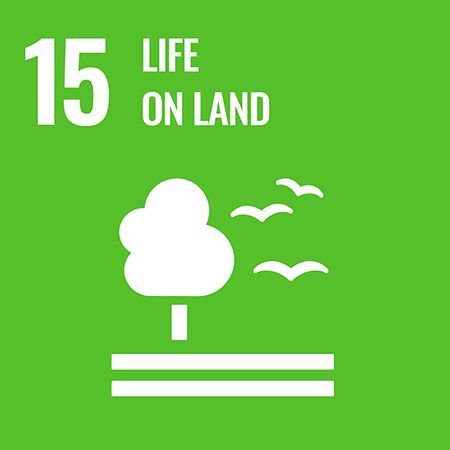INnovative Conservation Agriculture Approaches: Food Security and Climate Action Through Soil and Water Conservation
Abstract
The crucial challenge for smallholder farmers in Sub-Saharan Africa is feeding a growing population while preserving the natural resource base of the agricultural system. In future, this challenge will be exacerbated by soil degradation and climate change. Conservation Agriculture (CA) has been promoted as a strategy that can improve yields, soils and effective water use. CA thus has potential to increase the resilience of farming systems facing the mentioned challenges. However, CA has not moved from the invention to the innovation stage in Sub-Sahara Africa: the CA package is not meeting the farmers’ needs (stable yields from the beginning), capabilities (labour requirements and burden) and opportunities (need of specific inputs). Overall, the attempt to transfer a technology in a conventional linear way from science to farm has been disappointing. In view of this, the INCAA project is designed as an action research process that will target the challenging (and often missing) interfaces of science-driven technology and local realities in innovation systems. The overall objective of INCAA is to mentor and analyze a learning process that supports the innovation of CA in Sub-Saharan Africa. INCAA partners with the ABACO project, and the CA networks of ACT and CIRDES that promote CA in Kenya, Burkina Faso and elsewhere in Africa. Building on the experiences of these projects, INCAA will (1) map benefits and adaptations of CA in innovation systems around the partner projects; (2) foster joined learning of stakeholders to test and validate CA tools; and (3) develop learning strategies for an innovation process towards CA including institutional and individual dimensions. To achieve this, INCAA will start from those who take the final decision on the fate of CA: the farmers. By assessing how farmers have actually adapted and implemented CA, we can derive lessons on the benefits and losses related to such CA modes for all stakeholders involved in the agricultural system. Looking at the social system constituted by these stakeholders, we will further the understanding of enabling institutional environments that support innovation towards CA. All lessons of these activities will be integrated into a structured process of capacity building involving partners from ABACO and CA Networks (ACT and CIRDES). Finally, INCAA will experiment with new forms and media that help to facilitate learning processes at science-practice interfaces. INCAA will improve the impact of the partnering projects and CA Networks. Furthermore, INCAA partners will contribute to the scientific discourse around CA and development innovation through publications. Targeting the audience of farmers and development practitioners, videos and manuals on CA benefits to be reaped and learning processes will be produced. INCAA brings together development stakeholders with interdisciplinary expertise in agricultural and social research for development.
conservation agriculture food security innovation institutional learning science-practice interfaces
Publikationen
From Adoption Potential to Transformative Learning Around Conservation Agriculture in Burkina Faso
Autoren: Probst, L; Ndah, HT; Rodrigues, P; Basch, G; Coulibaly, K; Schuler, J Jahr: 2017
Conference & Workshop proceedings, paper, abstract
Project staff
Lorenz Probst
Mag. Dr. Lorenz Probst
lorenz.probst@boku.ac.at
Tel: +43 1 47654-93414
Project Leader
01.09.2014 - 31.12.2017
Michael Hauser
Assoc. Prof. Dipl.-Ing. Dr. Michael Hauser
michael.hauser@boku.ac.at
Tel: +43 1 47654-93415
Project Staff
01.09.2014 - 31.12.2017
BOKU partners
External partners

Kenya Agricultural Research Institute
none
partner

Leibniz Centre for Agricultural Landscape Research
none
coordinator

African Conservation Tillage Network
none
partner

Université Polytechnique de Bobo Dioulasso - Institut du Développement Rural
none
partner

Universidade de Évora, Instituto de Ciências Agrárias e Ambientais Mediterrânicas
none
partner

